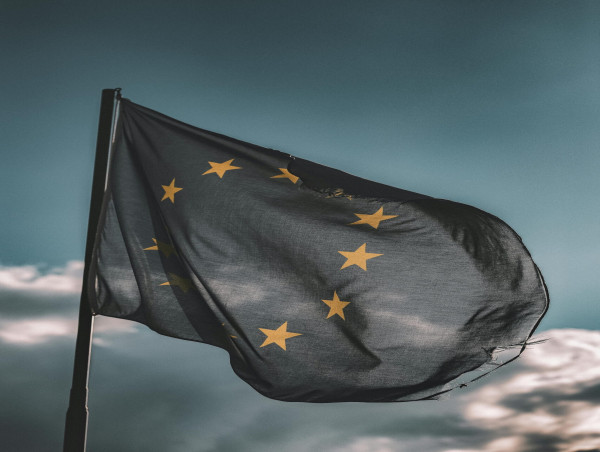The Eurozone, historically anchored by economic powerhouses Germany and France, is seeing a dramatic shift in its economic narrative.
In recent months, as Germany faces stagnation and France grapples with fiscal uncertainty, their Southern European neighbors have emerged as the unexpected bright spots in the region.
Countries like Spain, Greece, and Portugal, which had been written off during the financial crisis, are making impressive strides and positioning themselves as the new drivers of growth in the Eurozone.
The resurgence of Southern Europe
Spain, Greece, and Portugal have undergone a remarkable transformation since their debt-ridden days in the early 2010s.
These countries, which were among the hardest hit by the Eurozone crisis, have emerged as the region’s fastest-growing economies.
Spain and Greece are set to grow at rates above 2% this year, well above the Eurozone average of 0.8%. Portugal is following closely behind, with strong economic growth driven by a combination of tourism, exports, and structural reforms.
The recovery in these countries is not merely the result of cyclical factors like a post-pandemic tourism boom.
A years-long process of reform and investment has laid a foundation for more sustainable growth.
Spain, for instance, has benefitted from falling inflation, with its rate cooling to 1.7% in September, easing pressure on households and businesses alike.
Meanwhile, Greece’s economic recovery is mainly driven by its successful return to investment-grade status, a remarkable feat for a country that lost a quarter of its output during its decade-long crisis.
Portugal, too, has managed to bring down its debt levels, and its fiscal situation is much improved compared to the dark days of austerity.
The country’s tourism sector continues to thrive, but there’s also been a noticeable shift toward higher-value industries like technology and biotech services.
Greece and Spain are following similar trajectories, moving beyond their reliance on low-cost tourism to attract investment in more advanced sectors.
Are the powerhouses now struggling?
While Southern Europe is experiencing an economic renaissance, the same cannot be said for Germany and France, the traditional pillars of the Eurozone.
Germany, Europe’s largest economy, is currently mired in stagnation.
Industrial output has been in contraction territory for over two years, with key sectors like manufacturing and automotive struggling to recover from a combination of energy price shocks, weakened demand from China, and the fallout from the Ukraine crisis.
The Ifo Business Climate Index, which measures German business sentiment, has seen a steady decline, falling for five consecutive months. In September, the index stood at 85.4, indicating a continued downturn.
The country’s carmakers, such as Volkswagen and BMW, are feeling the pinch, with Volkswagen even considering closing a German factory for the first time in its history due to cost-cutting measures.
Meanwhile, France faces a different set of challenges. While inflation has cooled to 1.5%, its lowest in over three years, France’s fiscal position is increasingly precarious.
Government spending remains high, and the country’s debt-to-GDP ratio is still a cause for concern. In June 2024, France received a downgrade from S&P Global Ratings, further highlighting the growing fiscal risks.
Investors have started to take notice, with French bond yields climbing higher than Spain’s—a reversal of the historical norm.
Political uncertainty in both Germany and France is compounding these economic challenges.
France, in particular, has seen a rise in populist and far-right parties, threatening to destabilize the political landscape.
All of the above factors have raised questions about the ability of these nations to implement the necessary reforms to boost growth and restore confidence.
Should we expect a shifting Eurozone narrative?
The shift in the Eurozone’s economic narrative could affect the region’s future forever.
For years, Germany and France were seen as the economic anchors, providing stability and driving growth across the Eurozone.
But now, Spain, Greece, and Portugal are stepping into the spotlight, defying the narrative that Southern Europe is economically weak and reliant on handouts from richer northern nations.
This transformation has not only altered perceptions but is also influencing European policy.
The European Central Bank (ECB) is facing growing pressure to rethink its monetary strategy.
With inflation under control in the southern parts, there’s a strong argument for cutting interest rates to spur growth.
However, ECB policymakers are not easily entertained.
They keep emphasizing that there still are potential risks in the services sector and are concerned about further complicating Germany’s already fragile economic situation.
At the same time, this shifting narrative raises broader questions about the future balance of power within the Eurozone.
Will Germany and France be able to regain their former economic strength, or will the rising stars of Southern Europe overshadow them?
For now, Spain, Greece, and Portugal are proving that they have the potential to lead the region’s recovery, and their success is challenging the established order.
What are the future expectations?
As Southern Europe continues to outpace the historically dominant economies of Germany and France, investors may begin to shift their focus away from traditional markets like the DAX and CAC 40.
The ongoing transformation in Spain, Portugal, and Greece—fueled by robust growth, improving fiscal health, and diversification into higher-value industries—has made these countries increasingly attractive.
With Germany’s industrial slowdown and France’s fiscal strains weighing on investor confidence, the Southern European markets could provide a glimpse of hope to European investors.
The stability and growth potential emerging from these previously overlooked economies could redefine where capital flows in Europe, creating new opportunities for both domestic and international investors.
The post Are we witnessing the biggest narrative change in Eurozone economies? appeared first on Invezz




